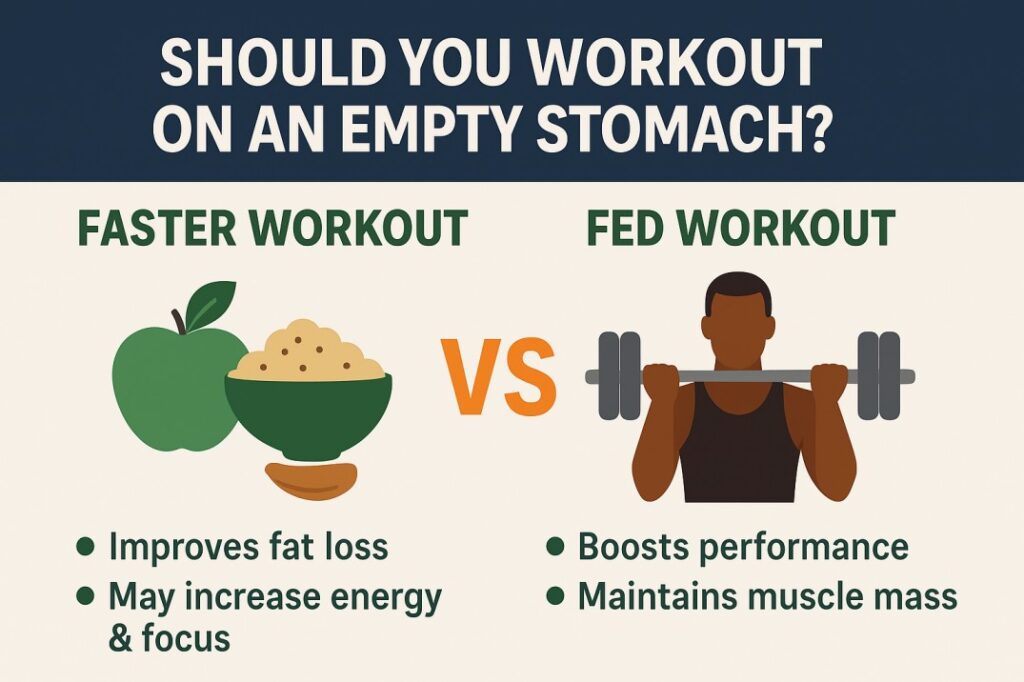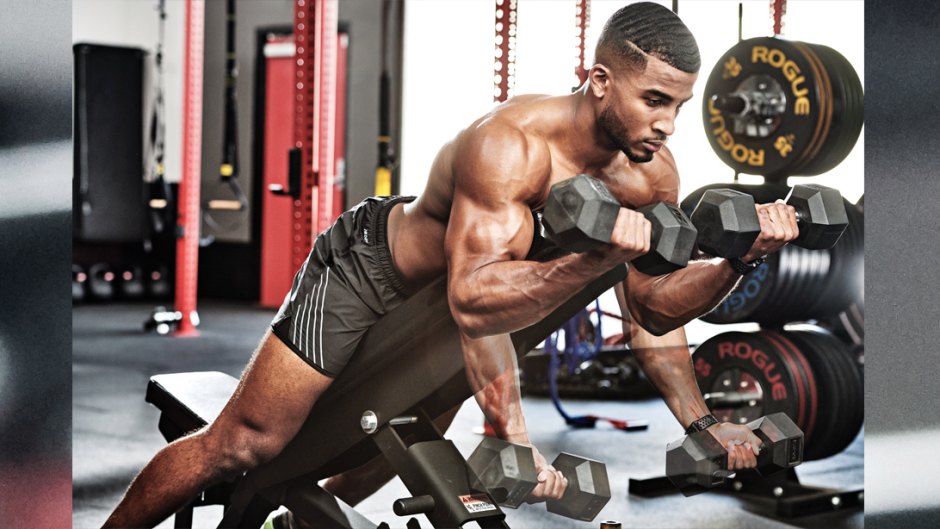🥗 Você deve malhar com o estômago vazio? A verdade sobre o exercício em jejum
Um dos debates mais comuns no mundo do fitness é se você deve ir à academia com o estômago vazio. Alguns juram por treinos em jejum para perda de gordura, enquanto outros argumentam que comer antes do treino alimenta um melhor desempenho.
Então, qual é a verdade? Vamos dividi-lo.
🔥 O que é cardio em jejum?
Malhar com o estômago vazio (geralmente de manhã antes do café da manhã) é chamado cardio em jejum. A ideia é simples: como você não comeu recentemente, seu corpo usará gordura e carboidratos armazenados para obter energia.
Isso parece ótimo em teoria, mas a pesquisa mostra resultados mistos.
- ✅ 2016 study (12 men): Those who trained fasted burned more fat during exercise and ate fewer calories throughout the day.
- ❌ 2014 study (20 women): After 4 weeks, both fasted and fed groups lost the same amount of body weight and fat.
👉 Conclusão: Cardio em jejum pode ajudá-lo a queimar mais gordura during o treino, mas isso não significa necessariamente que você perderá mais gordura em geral. A perda de gordura a longo prazo ainda depende do equilíbrio calórico total (calorias ingeridas versus calorias gastas).
⚡ Prós de malhar em jejum
- Fat burning boost – Your body may tap into fat stores more efficiently.
- Convenience – You can roll out of bed and train without worrying about a meal.
- Hormonal benefits – Training fasted may increase growth hormone levels, which support fat metabolism.
- Mental discipline – Some athletes feel sharper and lighter when exercising without food.
⚠️ Contras e riscos do treinamento em jejum
- Lower energy & stamina – Without food, your body might struggle with endurance.
- Protein breakdown – Your body may use muscle protein for energy, which can hurt muscle growth.
- Blood sugar drops – You may feel lightheaded, shaky, or nauseous.
- Not great for intense training – Heavy lifting, sprinting, or long endurance workouts usually require fuel.
- Possible fat adaptation – Over time, your body may start storing more fat to prepare for future fasted sessions.
🥙 Quando você deve comer antes de um treino?
Depende do tipo de exercício:
- Light activities (walking, stretching, yoga): Okay to do fasted.
- Strength training (weights, HIIT, CrossFit): Eat something beforehand to lift heavier and perform better.
- Endurance training (running, swimming, cycling): Fuel up, especially if training lasts over 1 hour.
👉 Maratonistas e triatletas costumam comer during treino (géis energéticos, bebidas desportivas) para manter os níveis de glicose e prevenir a degradação muscular.
🥪 O que comer antes de um treino (2 a 3 horas antes)
- Complex carbs + protein + healthy fats:
- 🍚 Brown rice with chicken
- 🥙 Whole-grain wrap with veggies and hummus
- 🥑 Avocado toast with eggs
- If short on time (30–60 mins before):
- 🍌 Banana or apple with peanut butter
- 🍫 Energy bar
- 🍇 Dried fruit or trail mix
🥤 Mantendo-se hidratado
A hidratação é tão importante quanto a comida:
- Drink water before, during, and after workouts.
- For long sessions, include sports drinks or coconut water for electrolytes.
- Smoothies can also help combine hydration + nutrients.
🍲 O que comer depois de um treino (alimentos de recuperação)
A nutrição pós-treino ajuda a reparar os músculos e restaurar a energia. Apontar para Proteína + Carboidratos dentro de 30 a 120 minutos.
Ótimas opções:
- 🥛 Low-fat chocolate milk
- 🍓 Fruit smoothie with protein
- 🥪 Whole-grain sandwich with lean meat
- 🥜 Nuts & seeds with dried fruit
- 🍕 Whole-grain veggie pizza (yes, in moderation!)
- 🍦 Yogurt with berries
- 🍞 Whole-grain bread with nut butter
Adicione também alimentos ricos em:
- Vitamin C & D → boost recovery and immunity
- Calcium & Zinc → help with muscle repair and energy balance
⚕️ Considerações especiais
- Diabetes: Monitor blood sugar carefully before, during, and after exercise.
- Low blood pressure or thyroid conditions: Eat beforehand to avoid dizziness.
- High-intensity athletes: Pre-workout fuel is essential for performance.
Sempre consulte um médico se tiver problemas de saúde afetados por dieta e exercícios.
✅ Ponto-chave
- Fasted workouts can help with fat burning, but they’re not magic for fat loss.
- For casual/light workouts, fasted training is fine.
- For intense or long sessions, eating beforehand will give you more strength, energy, and endurance.
- The best approach? Listen to your body. Some people feel great training fasted, others feel weak.
👉 Mantenha-se hidratado, faça refeições balanceadas e alimente seus treinos de acordo com suas metas de condicionamento físico.
🔥 Dica Fitolympia: Se a perda de gordura é o seu objetivo, tente alternar os dias de cardio em jejum com os dias de treinamento de força alimentados. Dessa forma, você obtém os benefícios de queima de gordura sem sacrificar o crescimento muscular.


